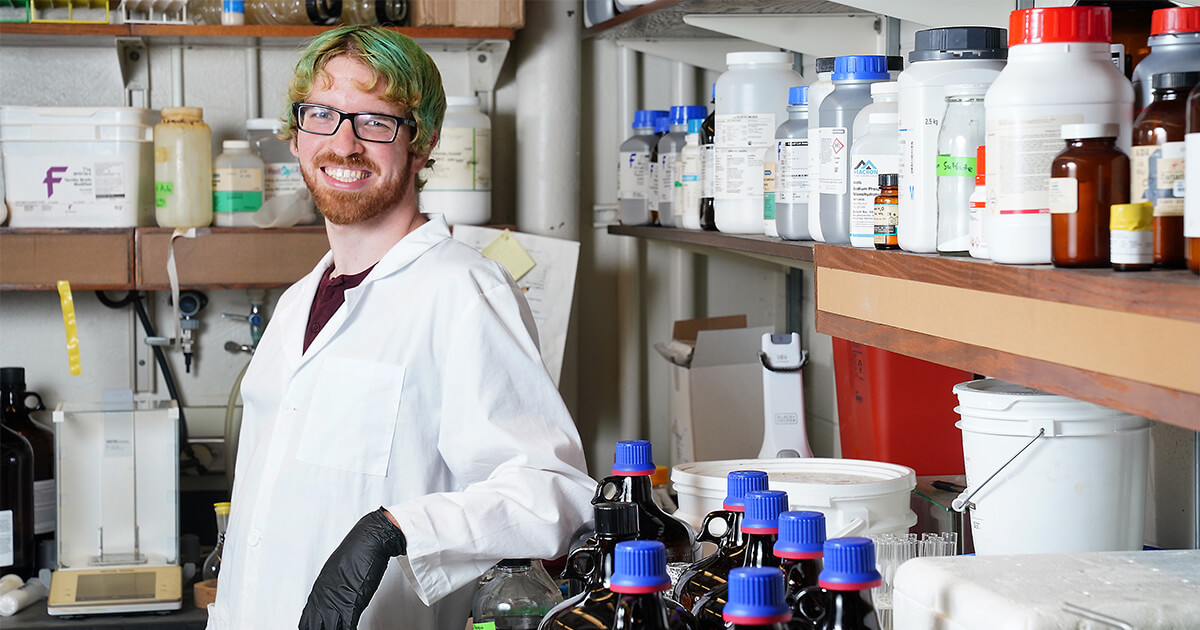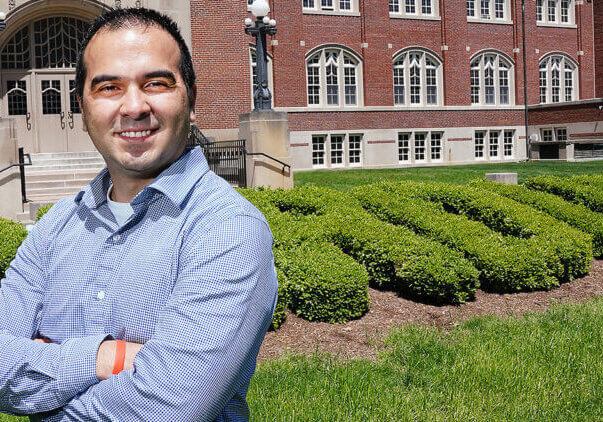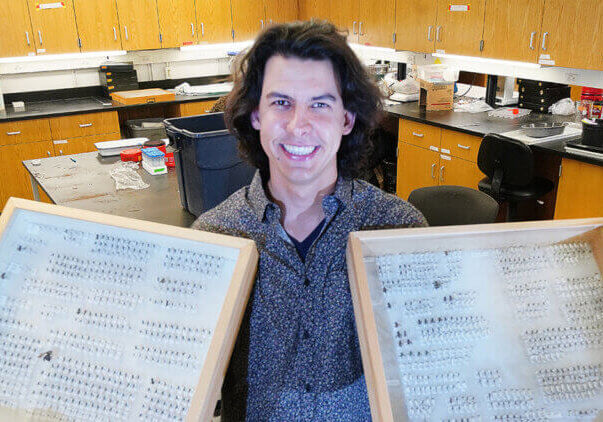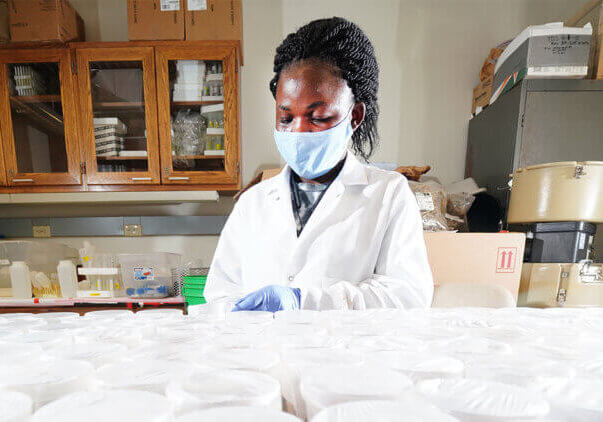"M
y research keeps me awake at night,” said Trevor Boram. “But in a good way.”
Boram, a Ph.D. candidate in biochemistry, began his collegiate career at Indiana University East. There, a faculty mentor who completed a postdoc at Purdue encouraged Boram to apply to graduate school in West Lafayette.

“My visit to Purdue was an amazing experience,” said Boram. “It felt like everybody here wanted me in their department.”
During faculty presentations to incoming graduate students, Boram was intrigued by the research of Jeremy Lohman, an assistant professor of biochemistry.
“I realized his work was incredibly important. It used medical applications of biochemistry to solve modern-day health crises,” Boram said.
Boram’s rotation in Lohman’s lab solidified his interest. Since fall 2017, Boram has worked in the same research space his Indiana University East mentor previously did.
“With my advisor’s support, I feel motivated to think up my own ideas and work hard in the lab to see if we can make them happen.”
Boram studies how the human body makes fatty acids and their secondary metabolites. These specialized molecules are used to make pharmaceuticals.
“Our lab has taken a new approach to study the specific phenomenon,” said Boram, who uses synthetic organic chemistry to make novel compounds and takes pictures using X-ray crystallography.
The resulting knowledge could lead to new antibiotics that can overcome antibiotic resistance and extend human lifespans.
“Every day my job gives me the opportunity to make new chemicals and learn strategies to apply to a real problem,” said Boram.
At Purdue, Boram has mentored 16 undergraduate students and chaired the 2020 Hitchhiker’s Guide to the Biomolecular Galaxy symposium. After completing his Ph.D. next spring, he plans to work as a chemist in the industry and conduct research in drug discovery.
Student’s research explores maritime shipping of agricultural commodities
When a ship ran aground and blocked the Suez Canal for six days in March, stranding more than 400 ships at one of the world’s busiest waterways, Manuel Jimenez stayed attuned to its impact.
Jimenez’s research at Purdue focuses on maritime shipping and international trade. The topics reflect his upbringing in Bogotá, Colombia, where his father operated a firm that exported flowers to the United States.
Read Full Story >>>Student’s research looks for answers at Purdue to questions raised at home in Nigeria
Adebukola Dada grew up on a Nigerian farm where her father raised various plants and animals. “If our crops did not do well, I asked my dad to tell me why,” Dada recalled. “That’s up to you to figure out,” her father replied. Now a Ph.D. student in agronomy, Dada is on her way to finding the answers.
Read Full Story >>>Student’s research explores maritime shipping of agricultural commodities
When a ship ran aground and blocked the Suez Canal for six days in March, stranding more than 400 ships at one of the world’s busiest waterways, Manuel Jimenez stayed attuned to its impact.
Jimenez’s research at Purdue focuses on maritime shipping and international trade. The topics reflect his upbringing in Bogotá, Colombia, where his father operated a firm that exported flowers to the United States.
Read Full Story >>>Student’s research looks for answers at Purdue to questions raised at home in Nigeria
Adebukola Dada grew up on a Nigerian farm where her father raised various plants and animals. “If our crops did not do well, I asked my dad to tell me why,” Dada recalled. “That’s up to you to figure out,” her father replied. Now a Ph.D. student in agronomy, Dada is on her way to finding the answers.
Read Full Story >>>

